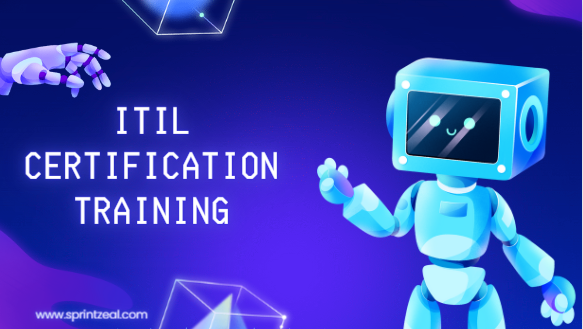In today’s digitally driven world, Information Technology Infrastructure Library (ITIL) certification stands as a beacon of excellence and proficiency in managing IT services effectively. For those venturing into the realm of IT service management, understanding the significance of ITIL certification is paramount. This comprehensive guide delves into what ITIL certification entails, why it holds such importance, and how it can shape your career trajectory.
What is ITIL Certification?
ITIL, a framework for IT service management, provides a structured approach to delivering high-quality IT services. ITIL certification validates an individual’s understanding and proficiency in implementing ITIL practices within an organization. Developed by the United Kingdom’s Office of Government Commerce (OGC) in the 1980s, ITIL has evolved into a globally recognized set of best practices for IT service management.
The Components of ITIL Certification
ITIL certification is structured into various levels, each catering to different skill sets and career aspirations:
- ITIL Foundation: This entry-level certification provides a fundamental understanding of ITIL concepts, terminology, and processes. It serves as a prerequisite for advanced ITIL certifications.
- ITIL Practitioner: Focusing on practical application, this certification equips professionals with the skills to adopt and adapt ITIL principles within their organizations.
- ITIL Intermediate: Split into two streams – Service Lifecycle and Service Capability – this level delves deeper into specific aspects of ITIL, such as Service Strategy, Service Design, Service Transition, Service Operation, and Continual Service Improvement.
- ITIL Expert: Recognizing comprehensive knowledge and expertise in ITIL, this level requires candidates to accumulate credits from both Foundation and Intermediate levels, along with a Managing Across the Lifecycle (MALC) module.
- ITIL Master: The pinnacle of ITIL certification, this level validates the ability to apply ITIL principles in real-world scenarios and drive organizational transformation.
Why is ITIL Certification Important?
1. Industry Recognition:
ITIL certification is globally recognized and respected by employers across various industries. Holding an ITIL certification demonstrates your commitment to excellence in IT service management, enhancing your credibility and marketability in the job market.
2. Standardized Best Practices:
ITIL provides a standardized framework of best practices for IT service management, enabling organizations to streamline processes, improve efficiency, and deliver superior services to customers. ITIL certification equips professionals with the knowledge and skills to implement these best practices effectively.
3. Career Advancement:
In today’s competitive job market, ITIL certification can set you apart from your peers and open doors to new career opportunities. Whether you’re seeking a promotion within your current organization or exploring job prospects elsewhere, ITIL certification enhances your chances of career advancement.
4. Increased Efficiency and Productivity:
By adopting ITIL practices, organizations can optimize their IT service delivery processes, leading to increased efficiency, productivity, and cost savings. ITIL-certified professionals play a crucial role in driving these improvements and ensuring the smooth functioning of IT operations.
5. Alignment with Business Objectives:
ITIL emphasizes the alignment of IT services with business objectives, ensuring that IT investments contribute to organizational success. ITIL-certified professionals possess the knowledge and skills to align IT strategies with business goals, thereby enhancing overall business performance.
6. Risk Management and Continual Improvement:
ITIL promotes a culture of continual improvement, enabling organizations to adapt to changing market dynamics and emerging technologies. ITIL-certified professionals are equipped to identify and mitigate risks proactively, ensuring the stability and resilience of IT services.
Conclusion
In conclusion, ITIL certification serves as a cornerstone for excellence in IT service management, offering a structured framework of best practices that organizations can leverage to optimize their IT operations. Whether you’re an aspiring IT professional looking to kickstart your career or a seasoned IT veteran aiming to enhance your skill set, ITIL certification provides a pathway to success. By obtaining ITIL certification, you not only validate your expertise but also position yourself as a valuable asset to any organization striving for operational excellence and customer satisfaction in today’s digital age.









